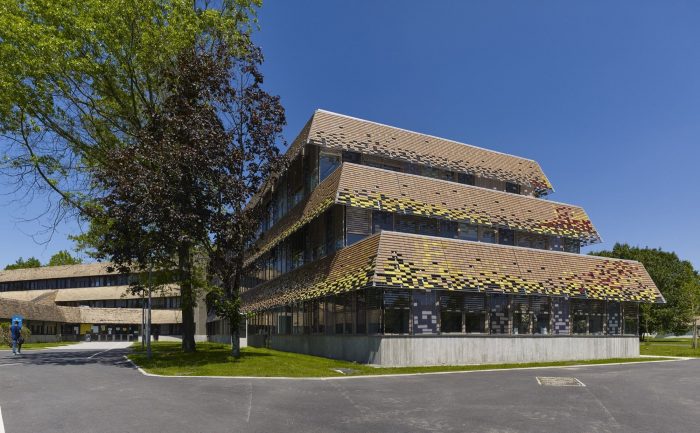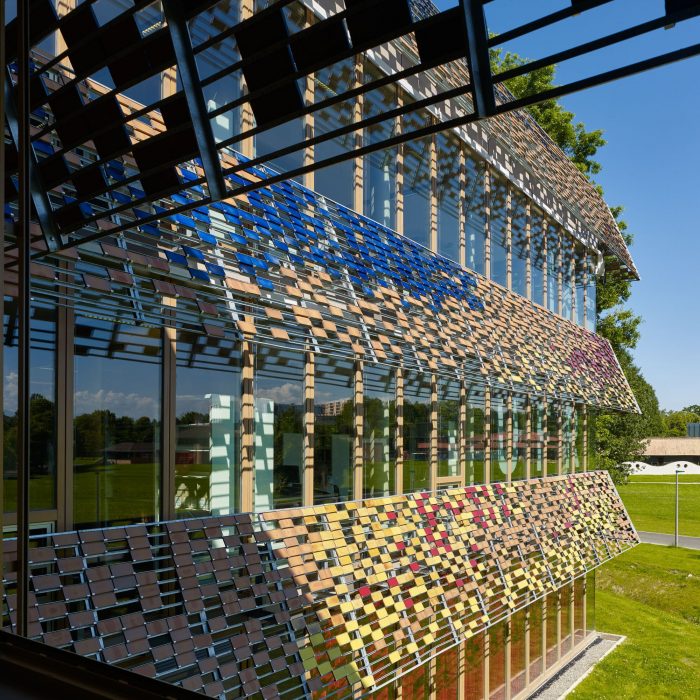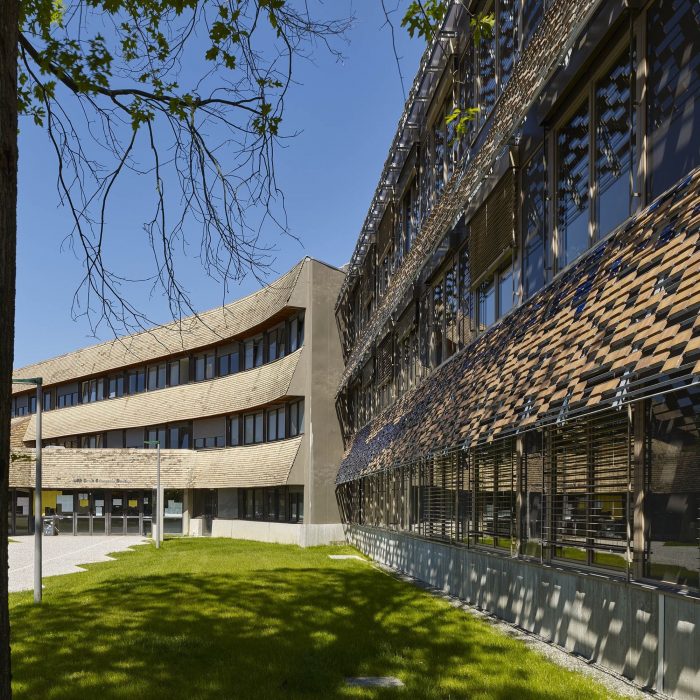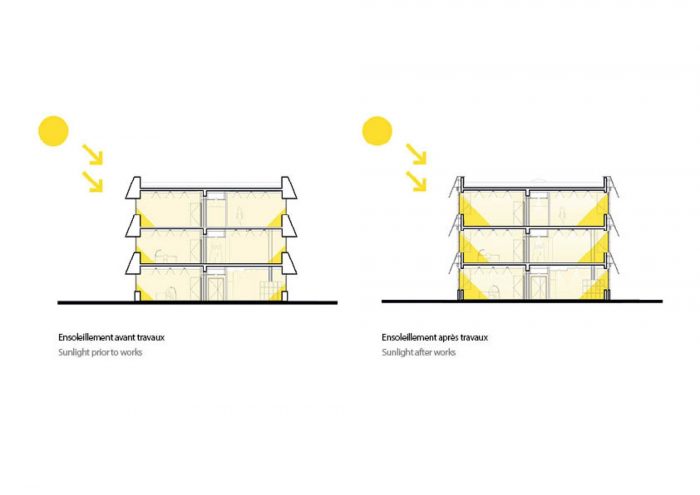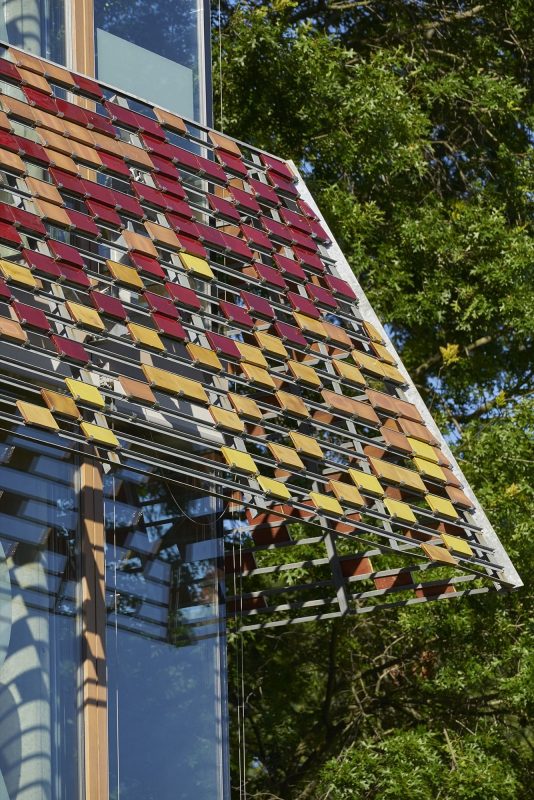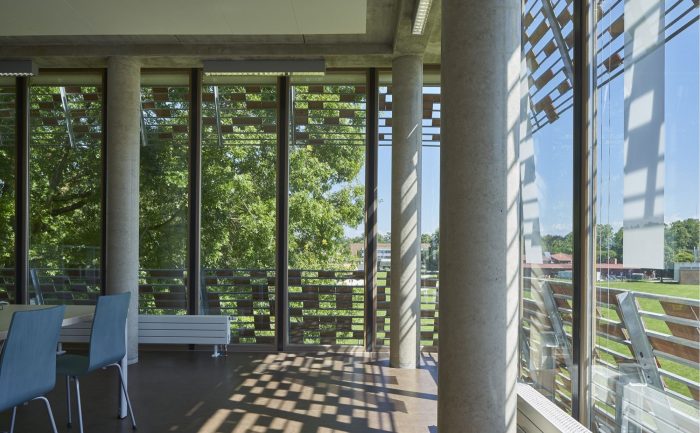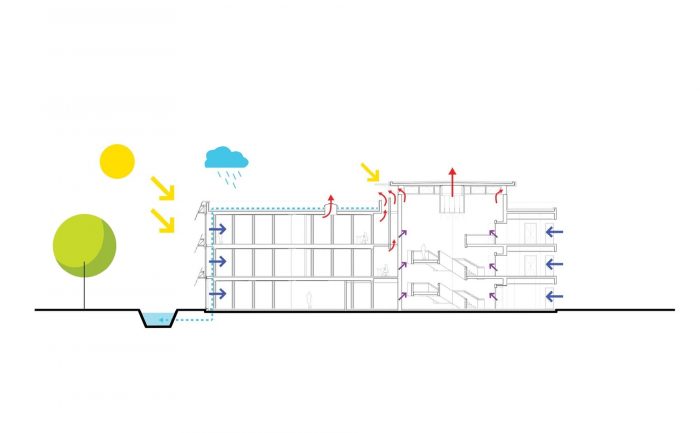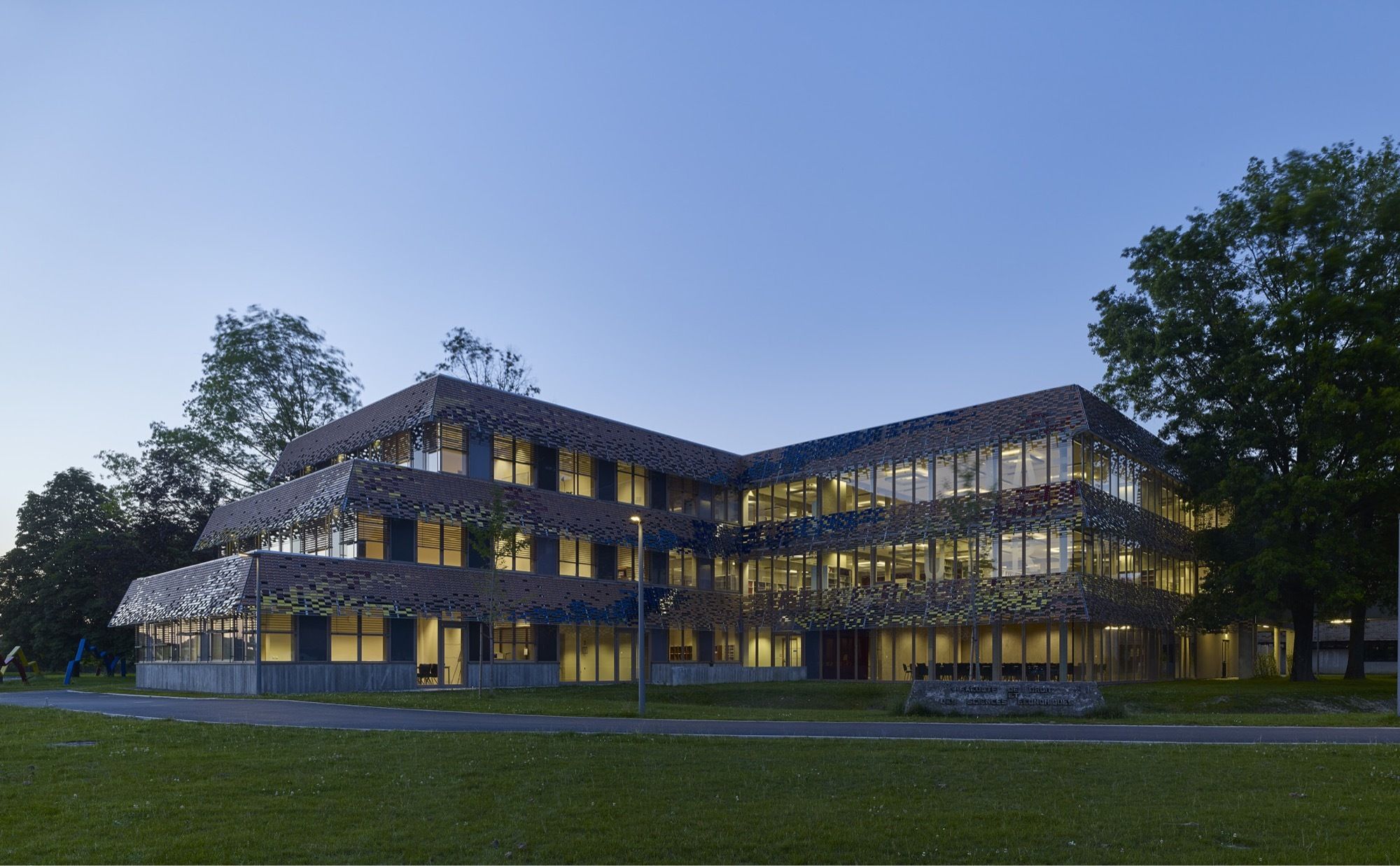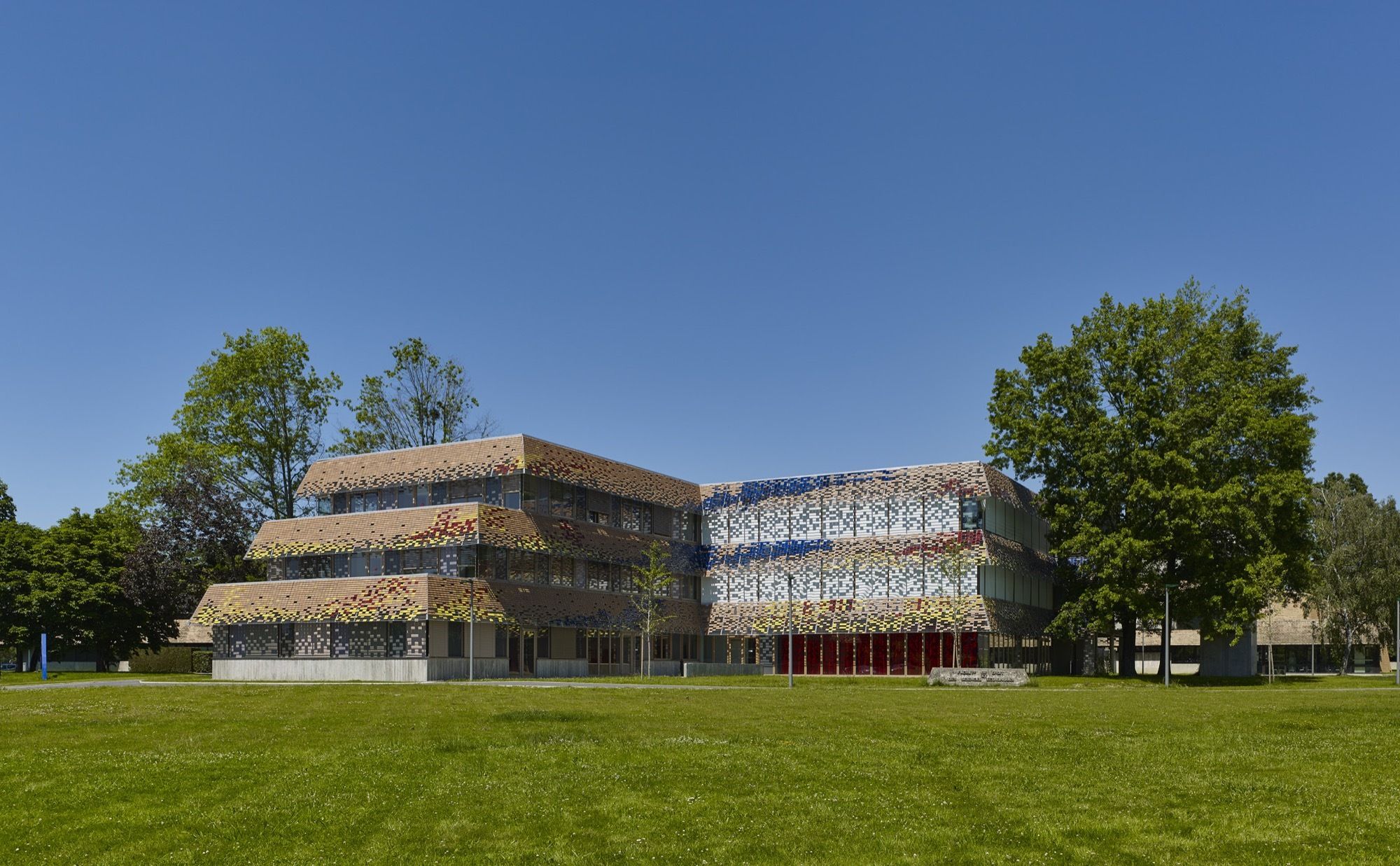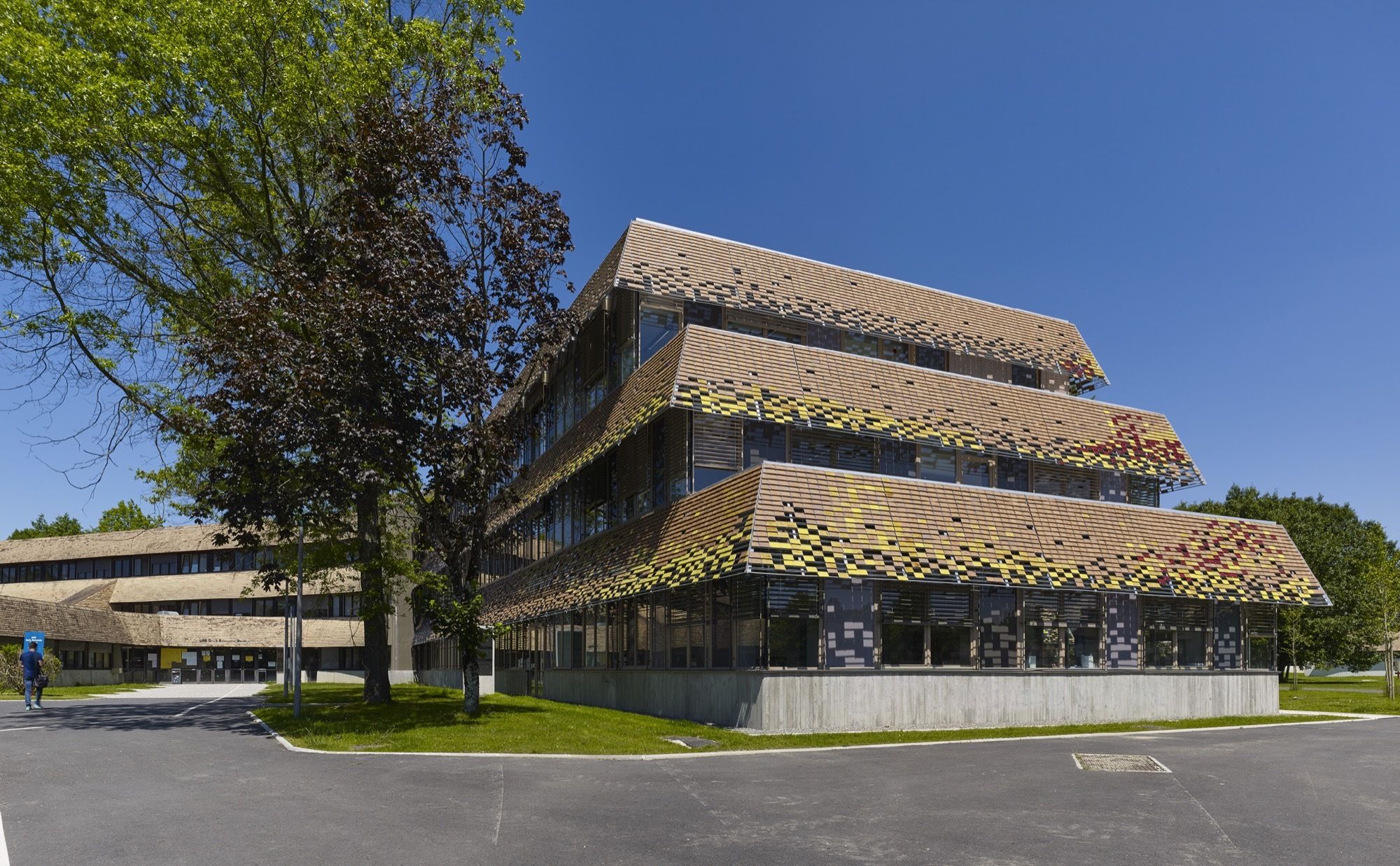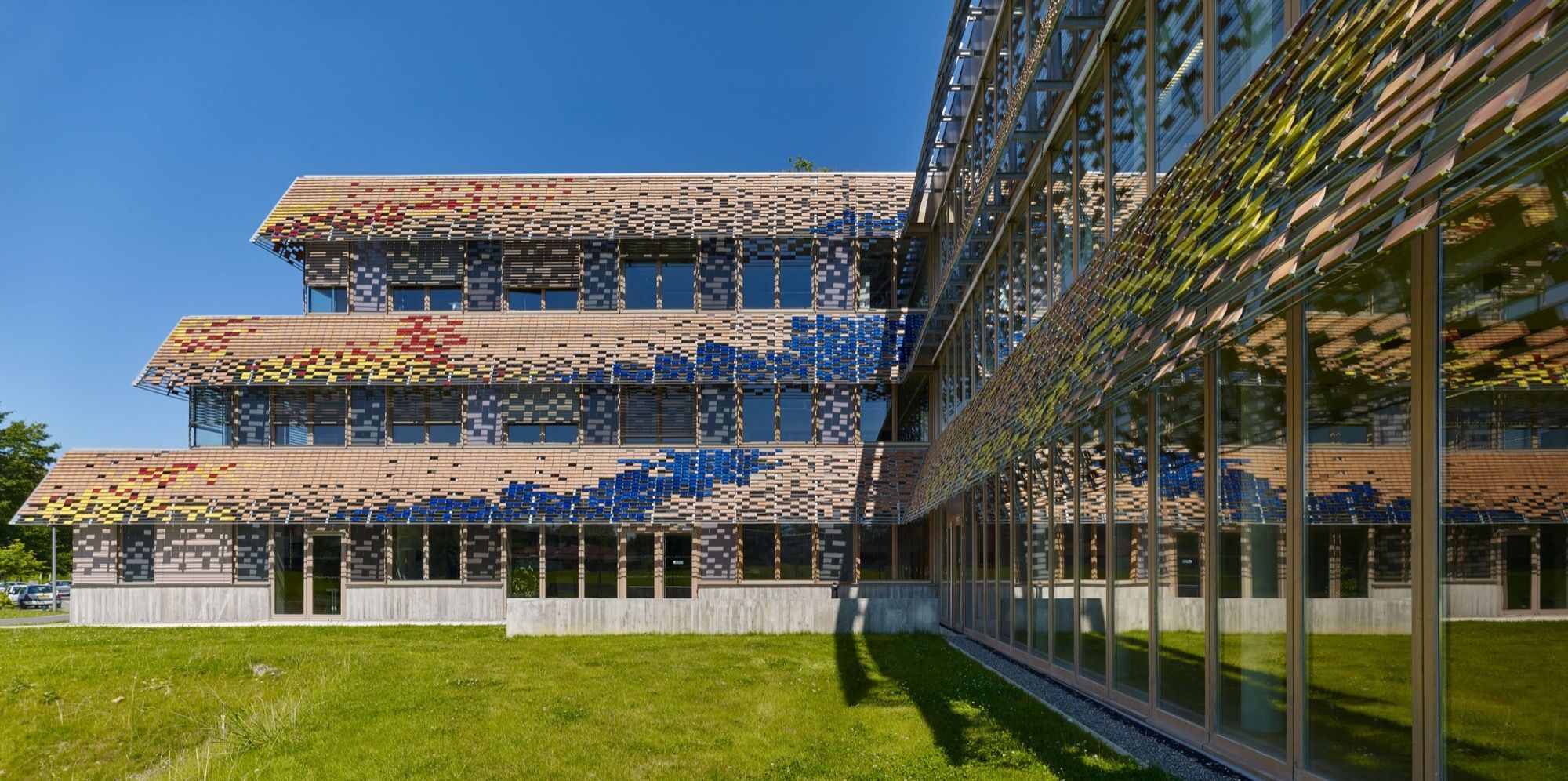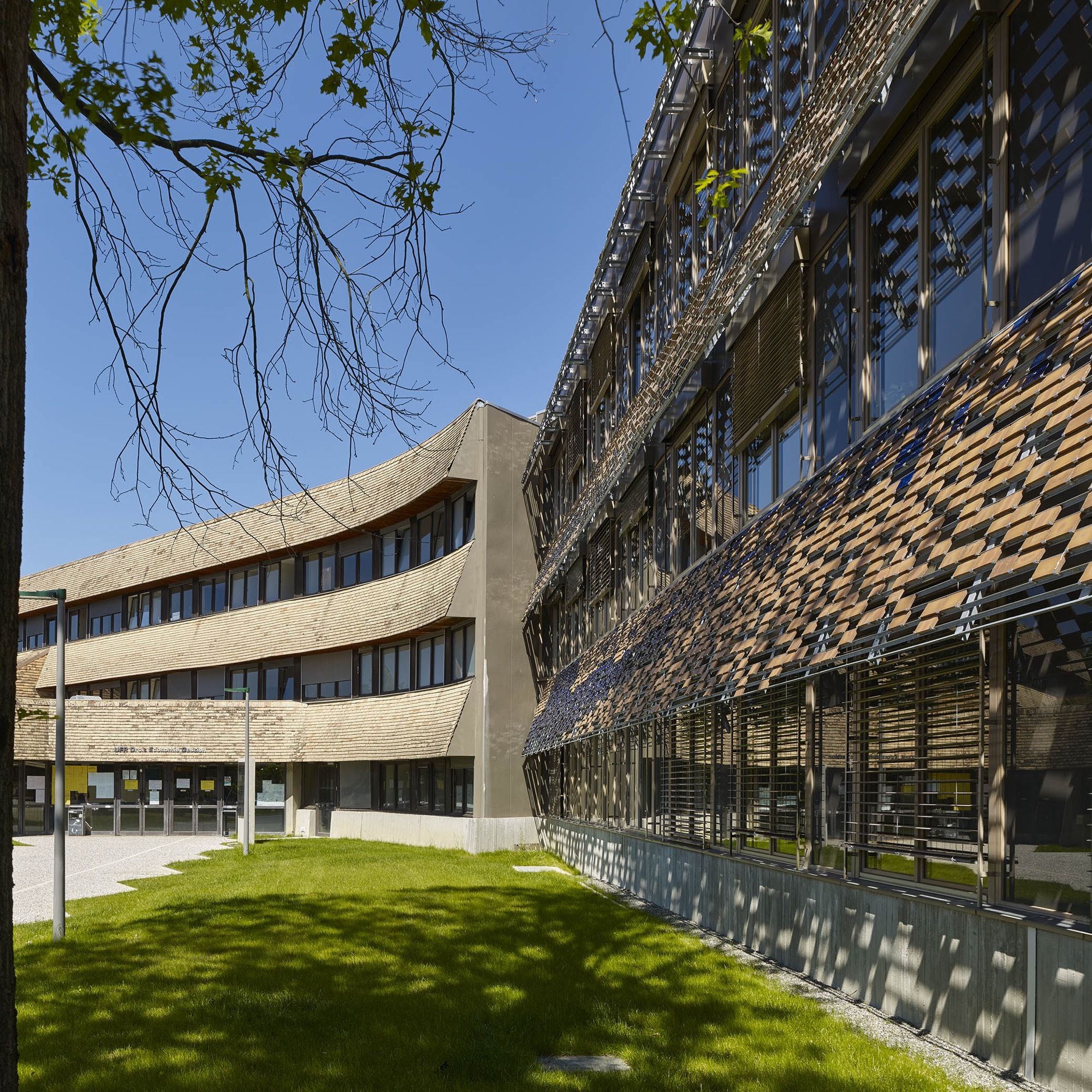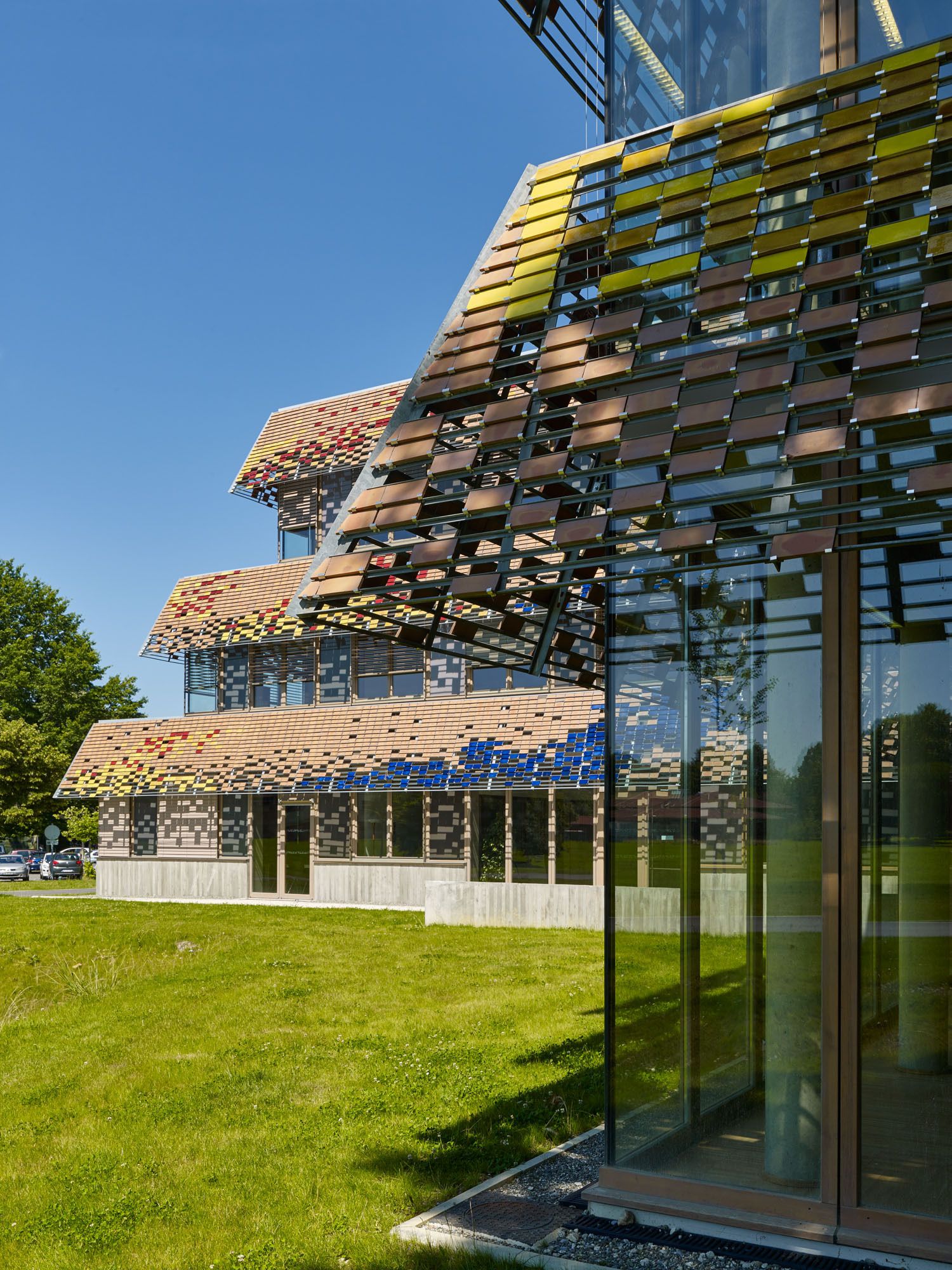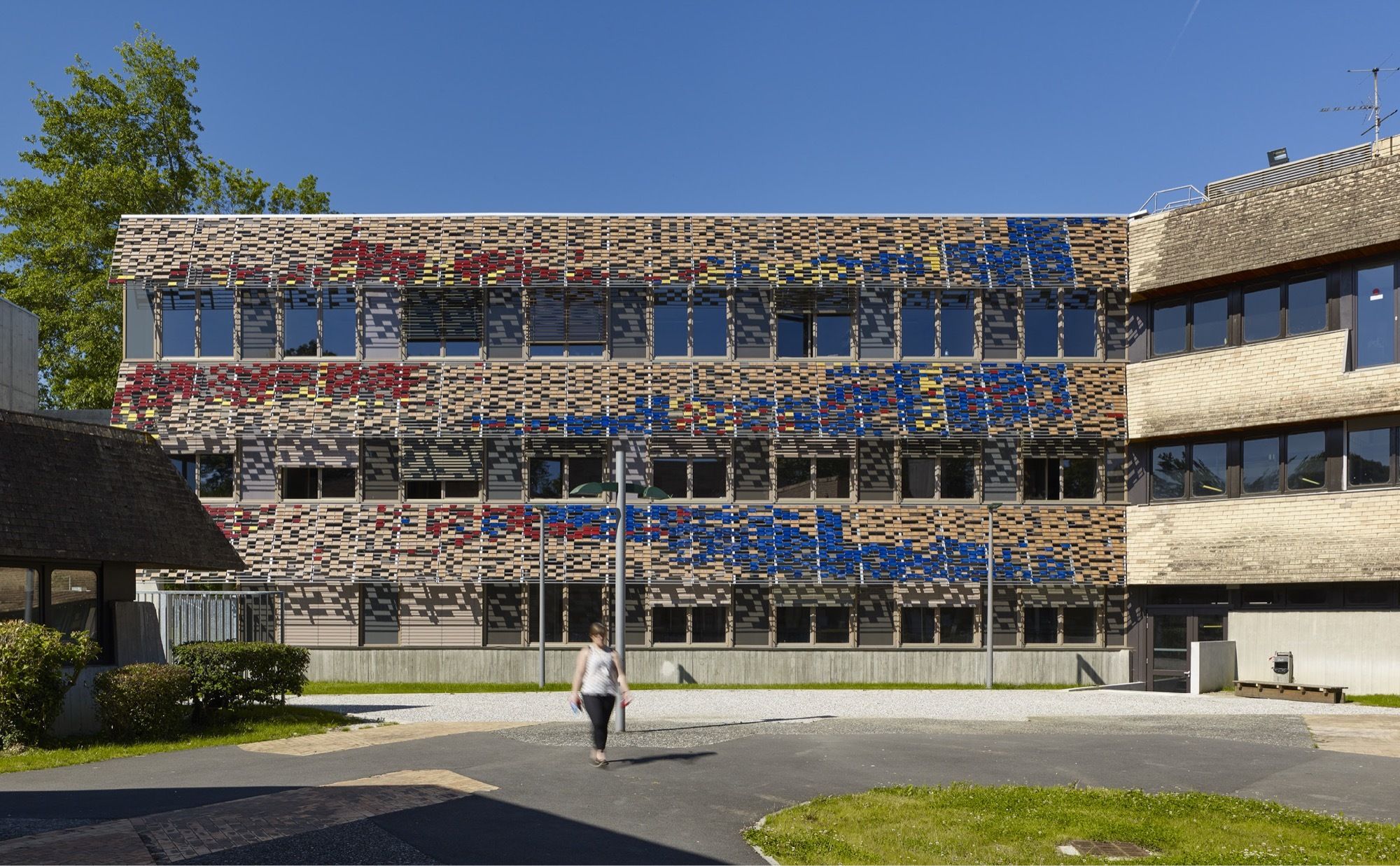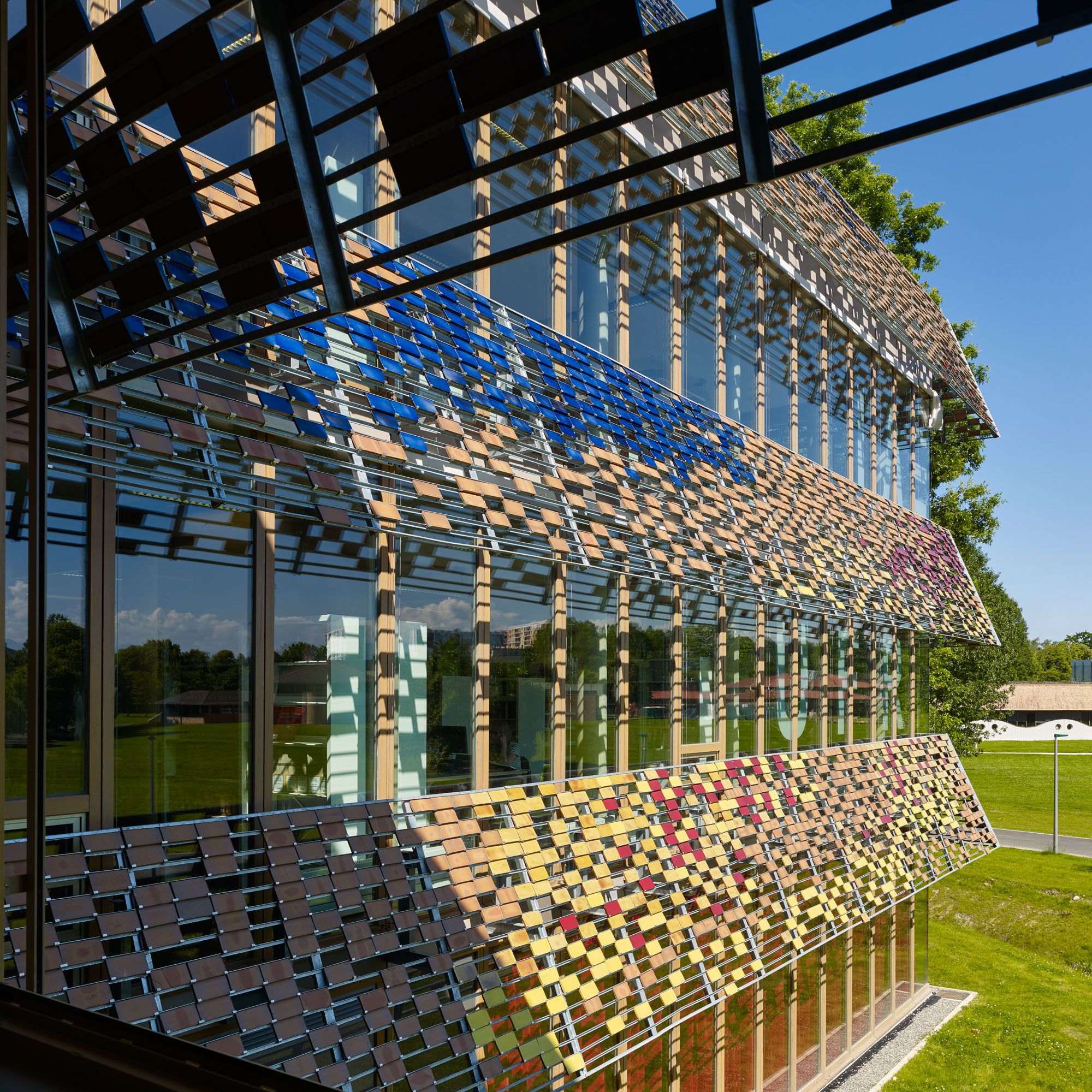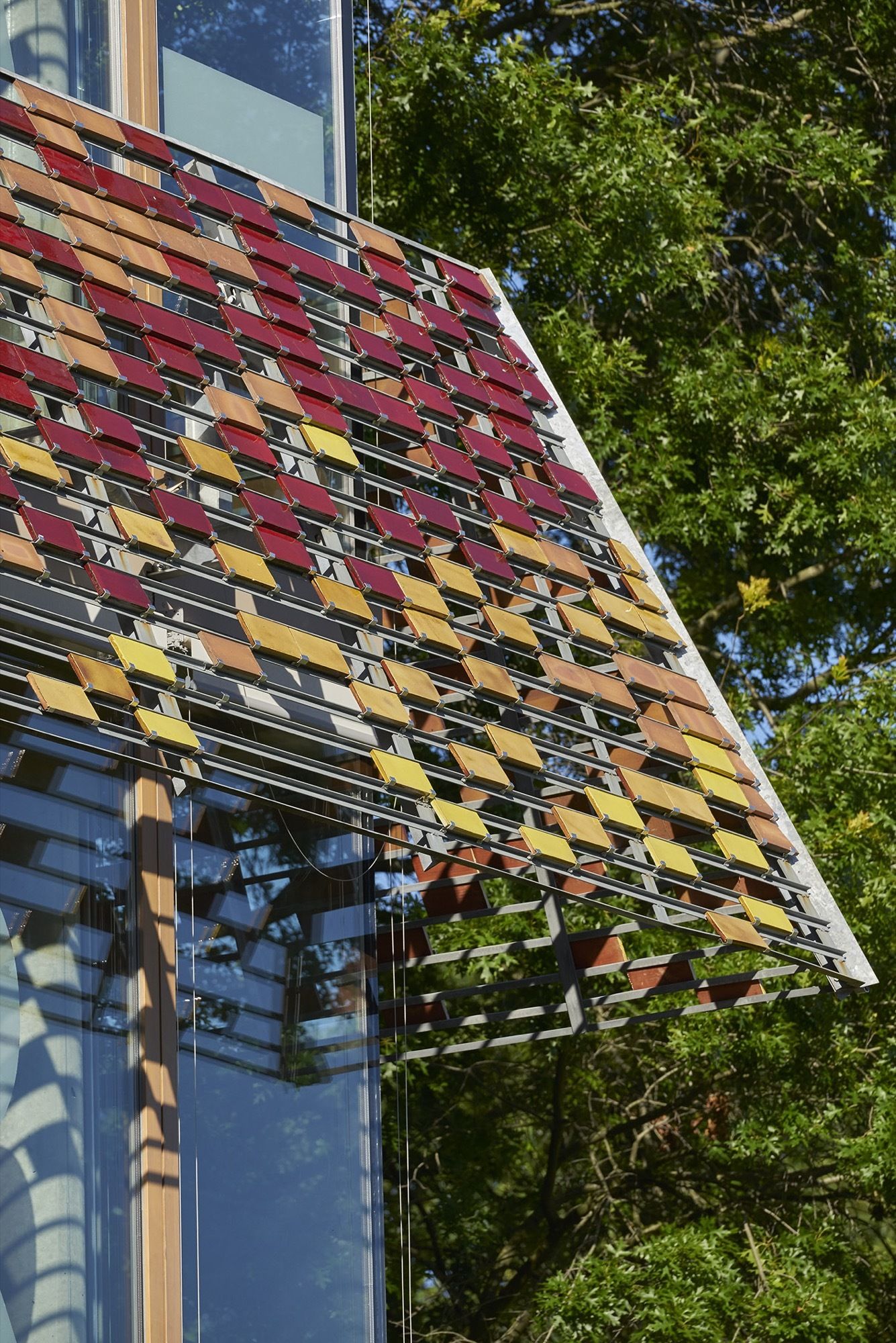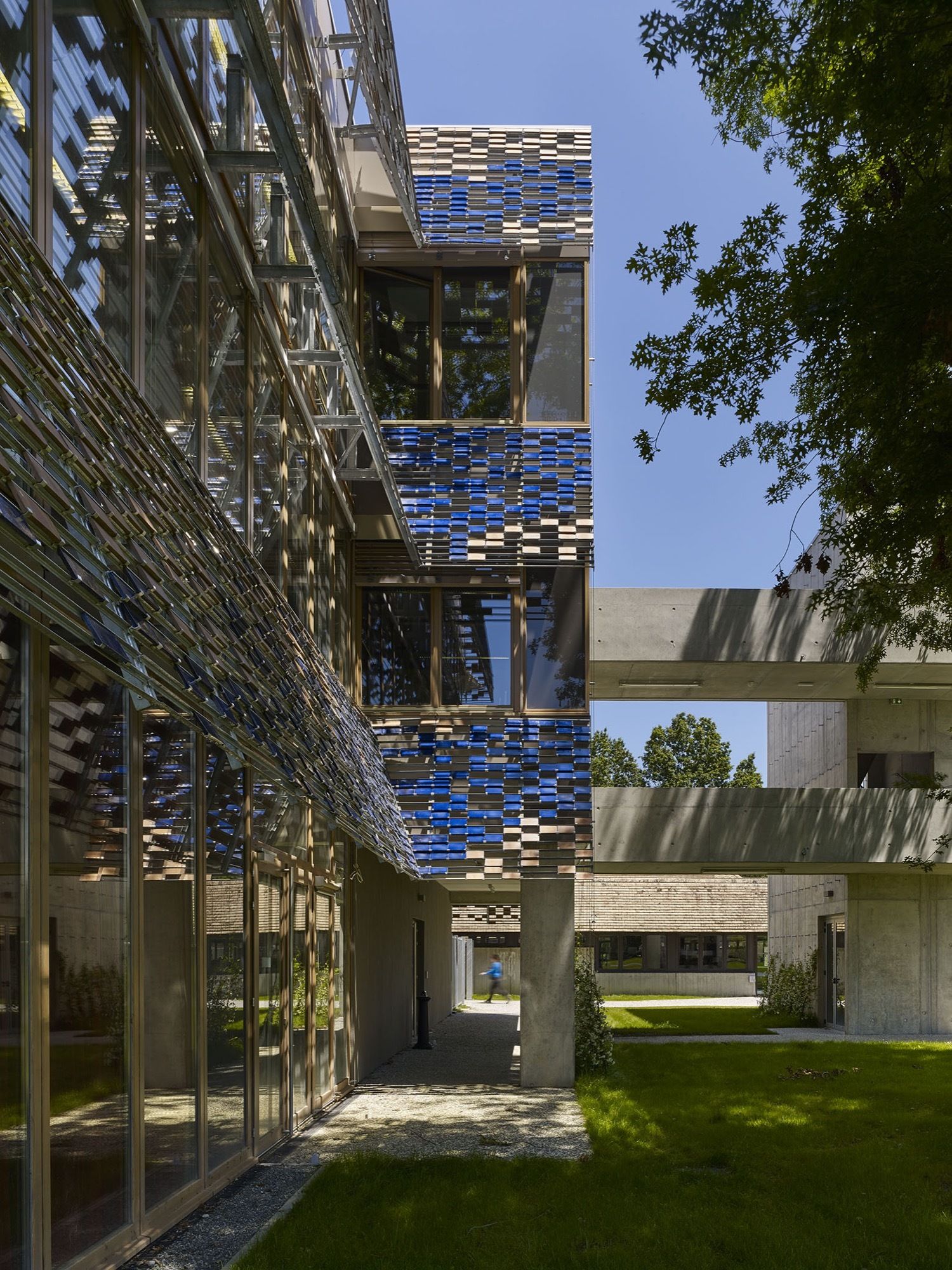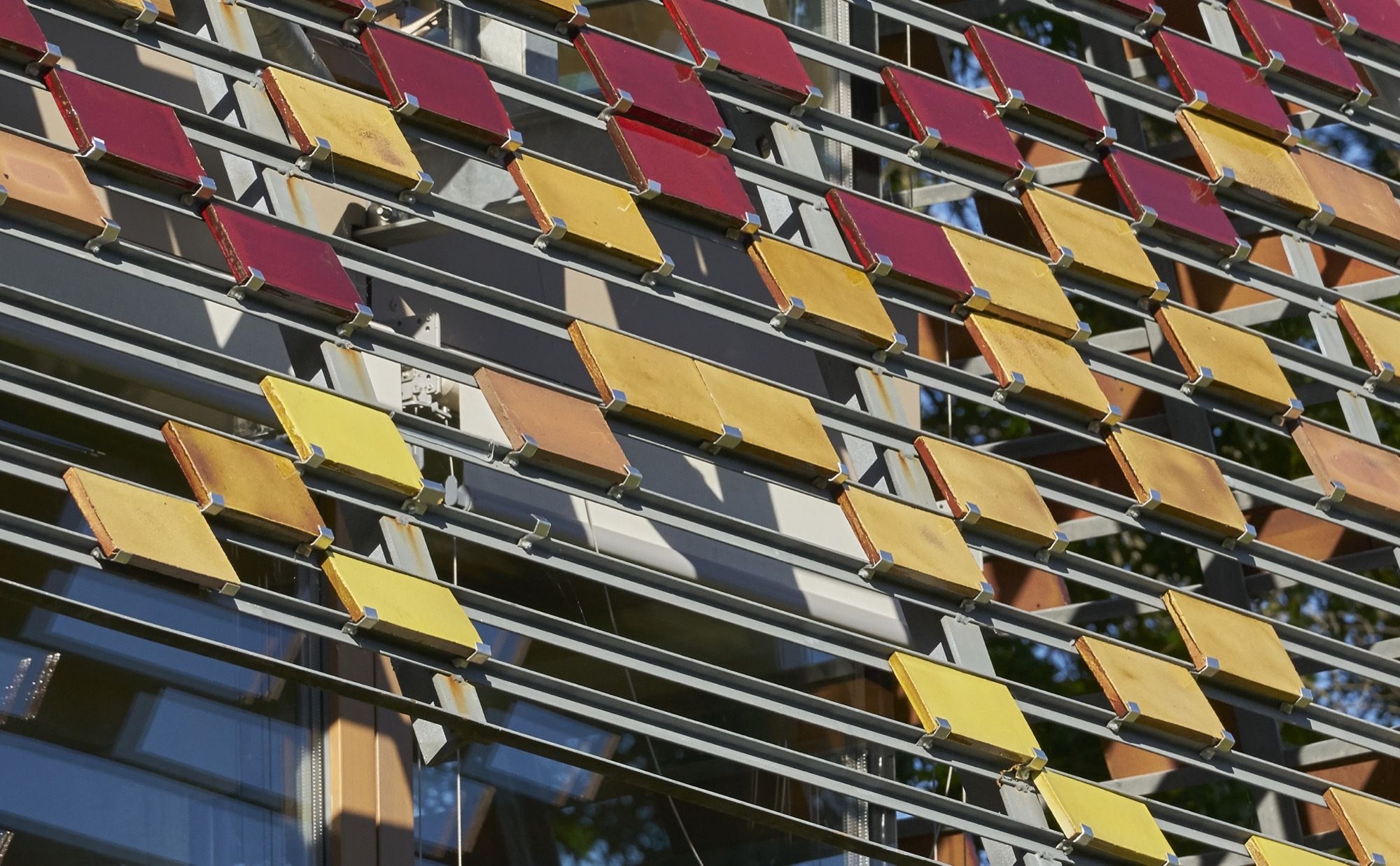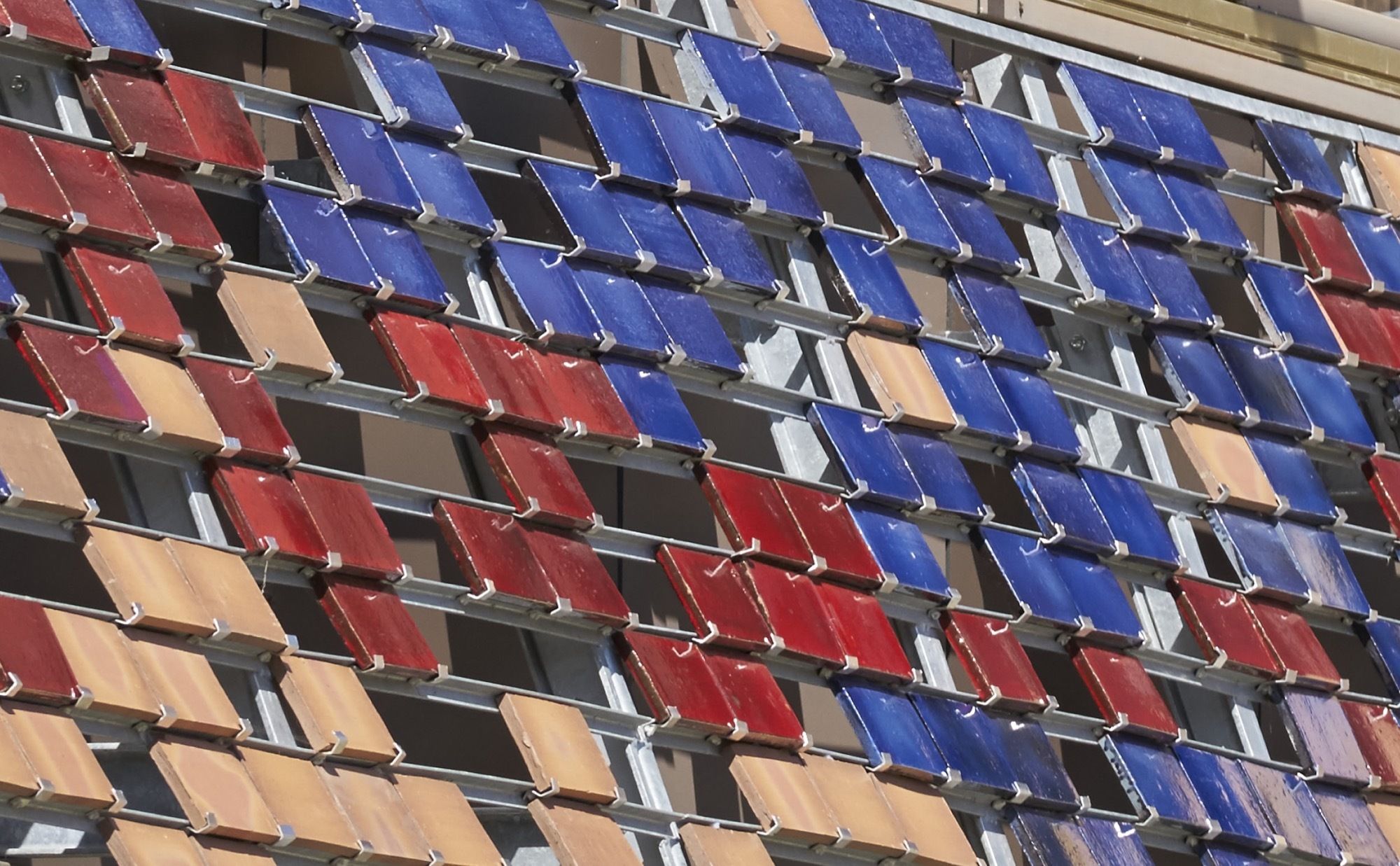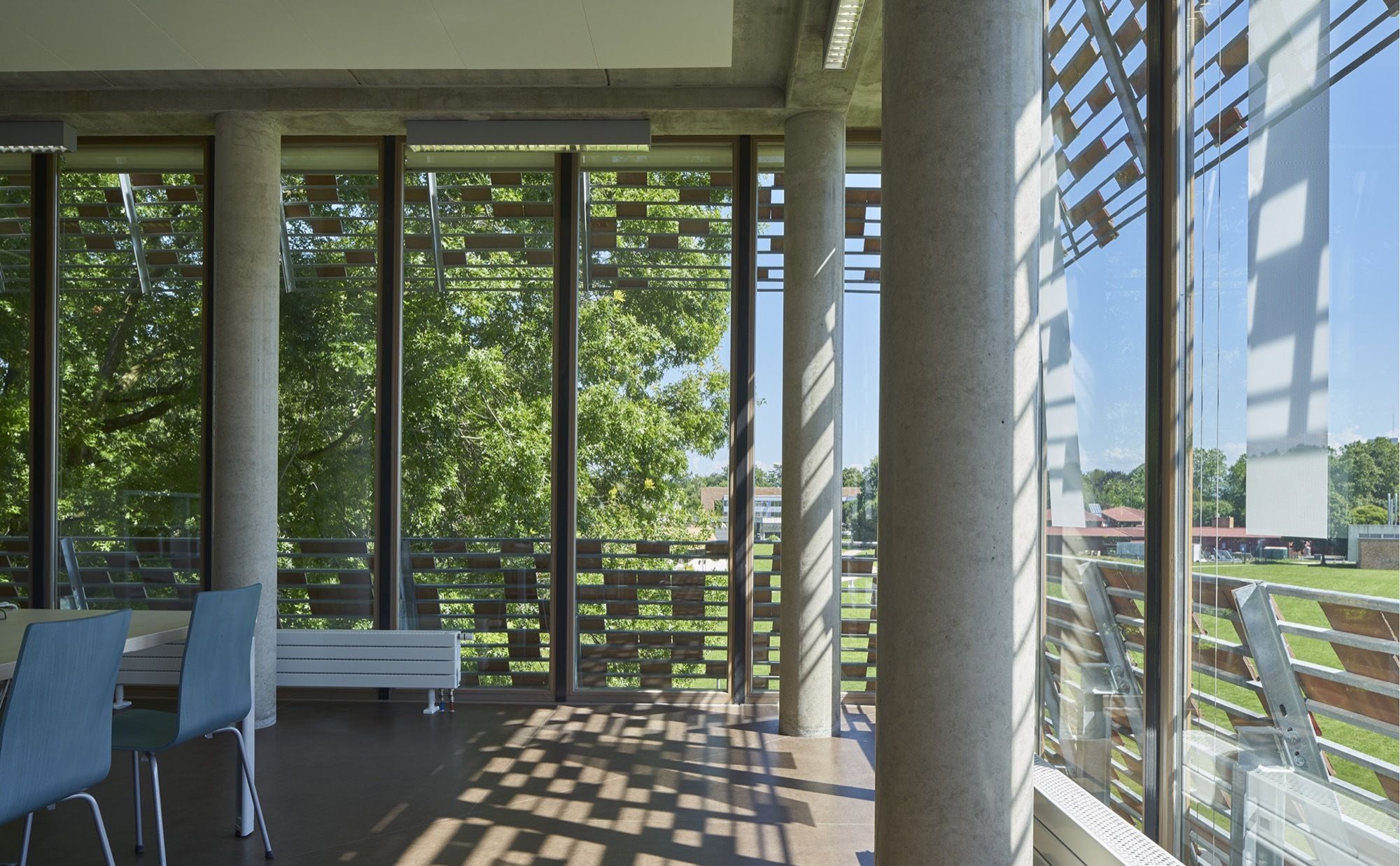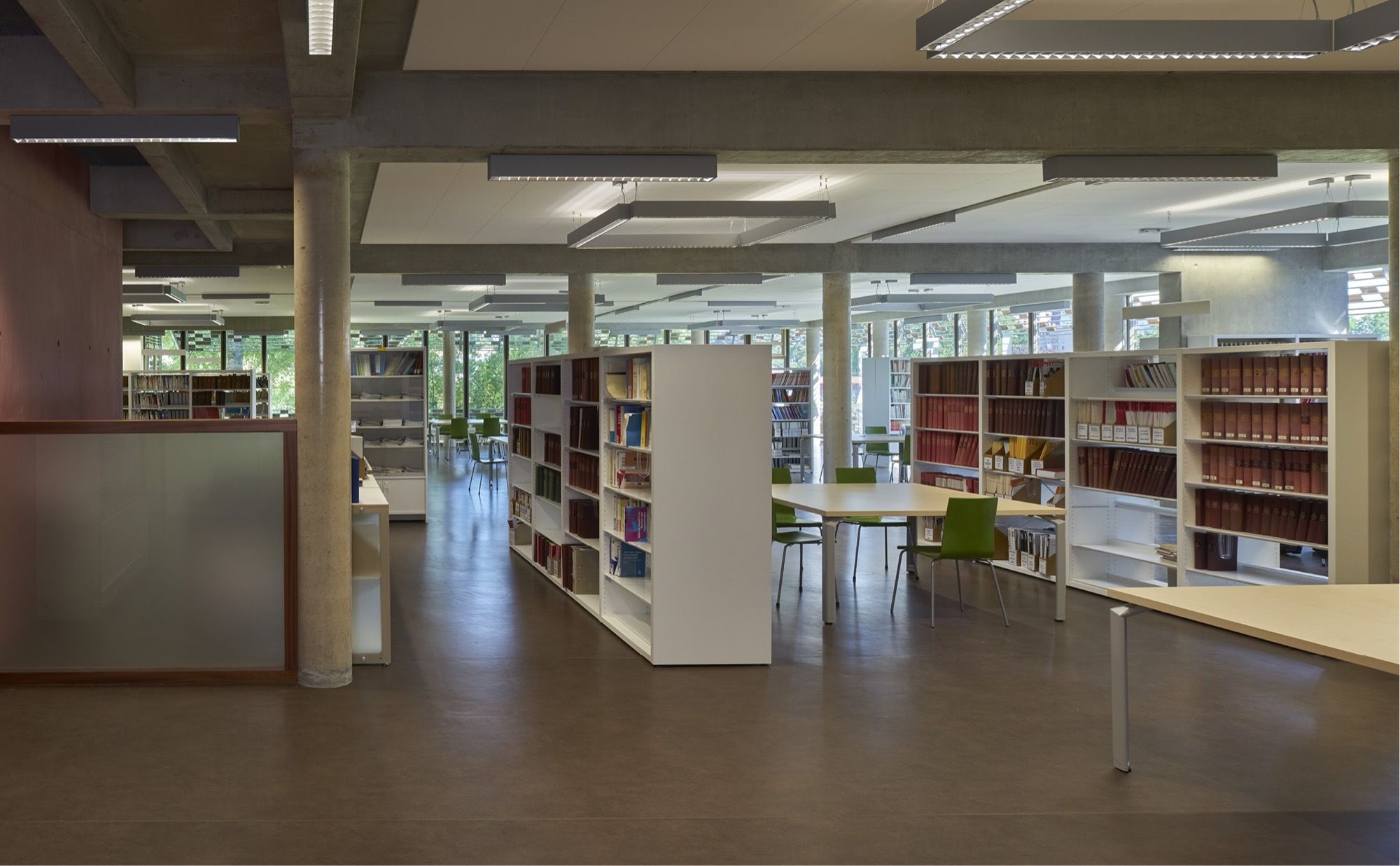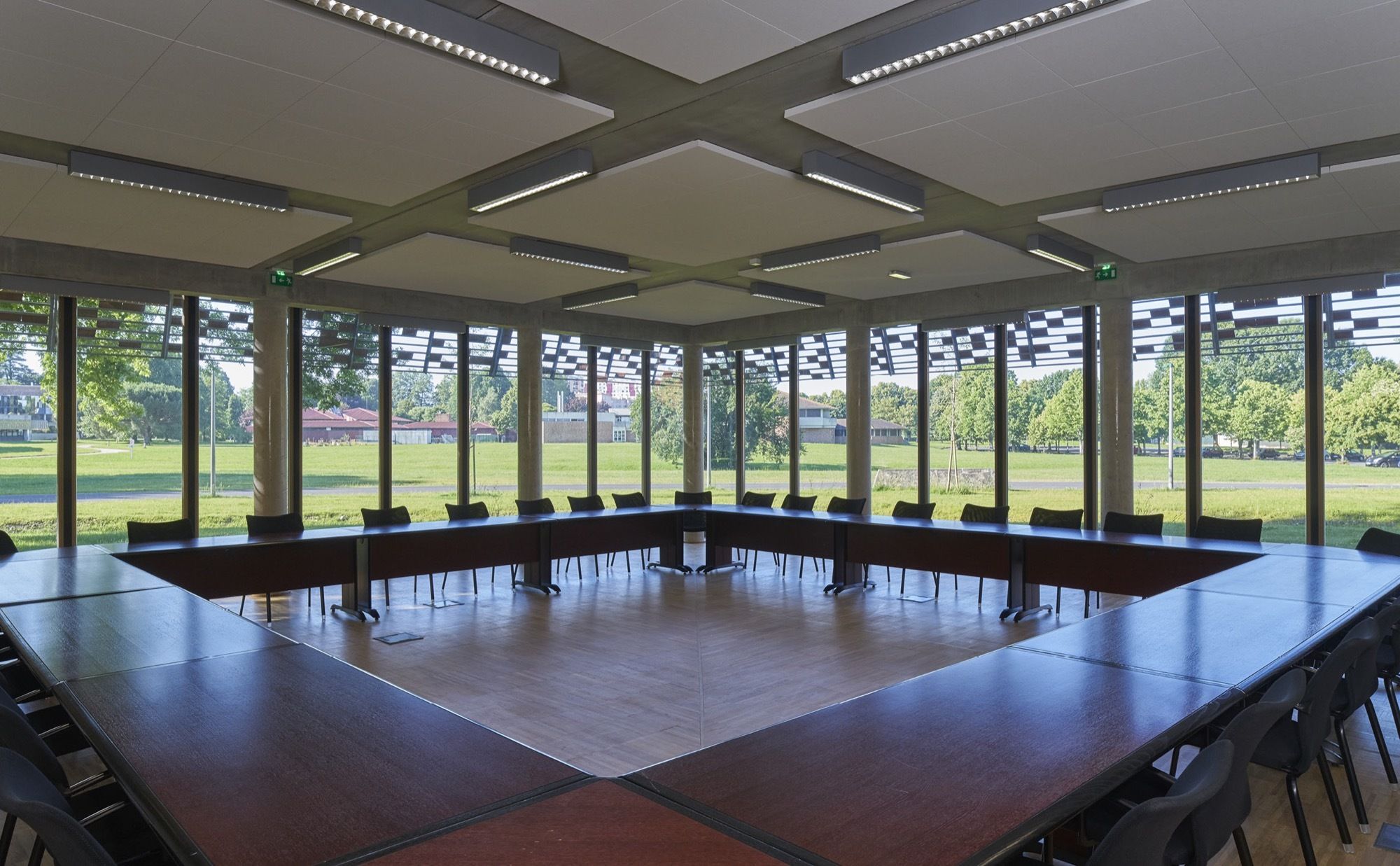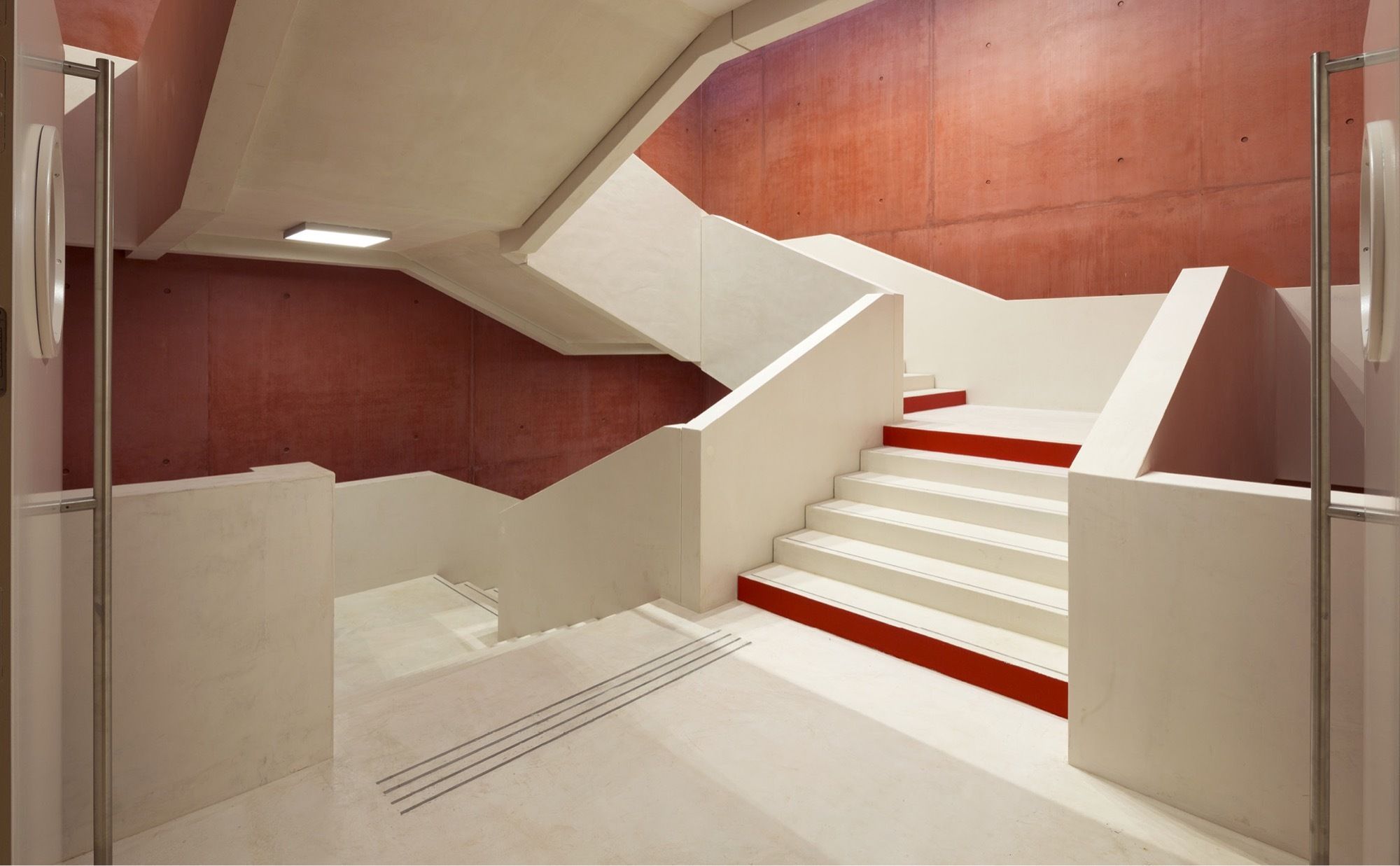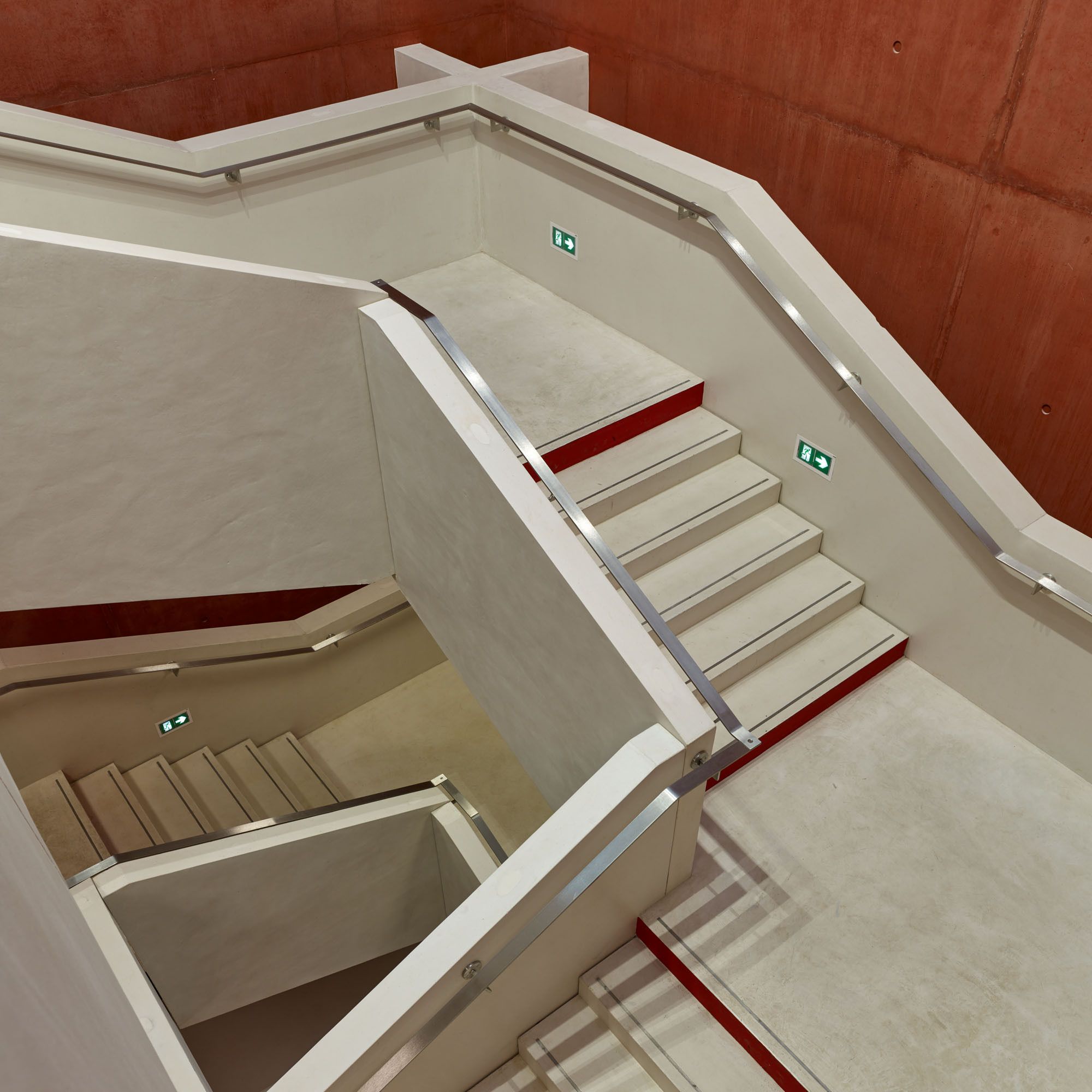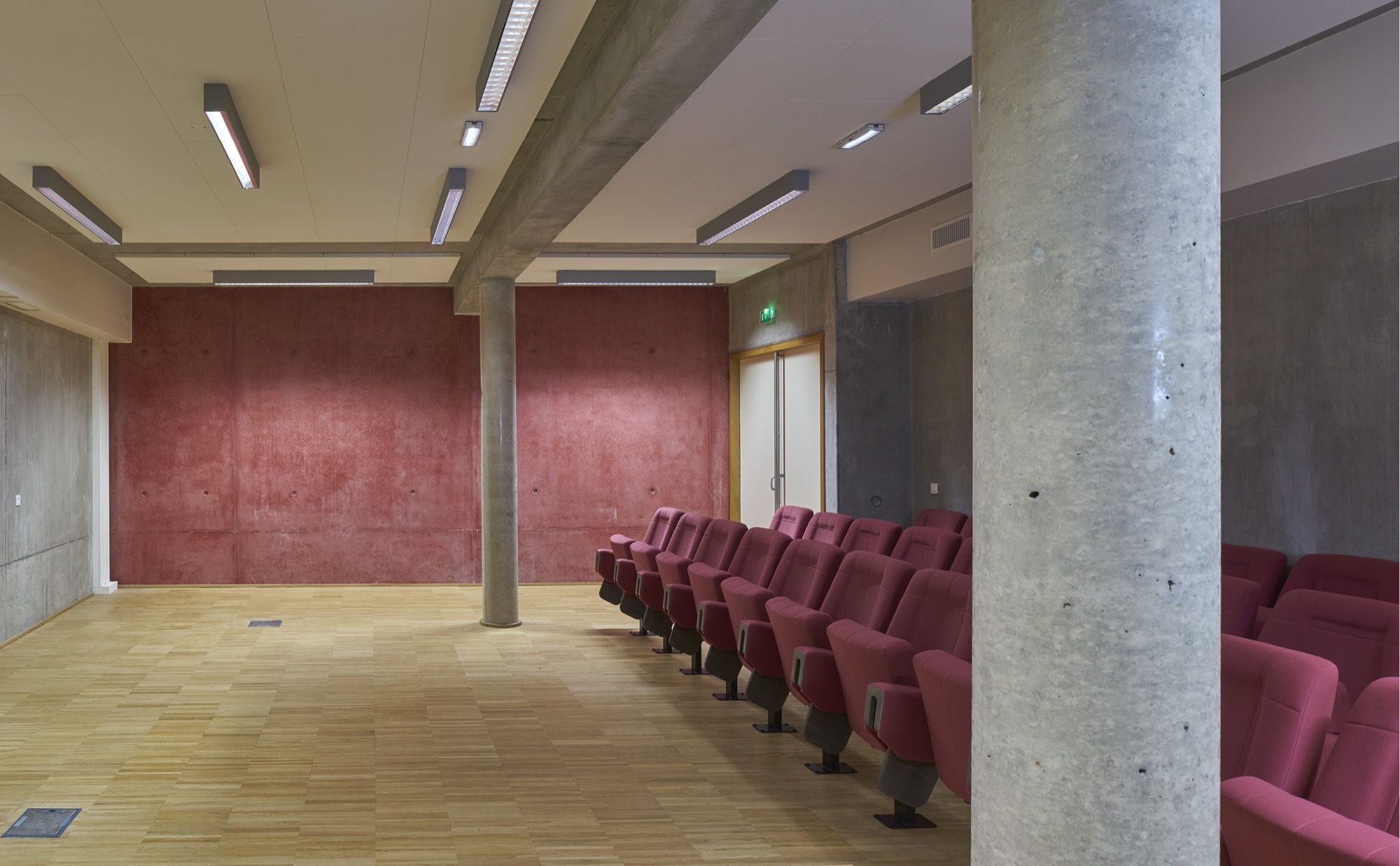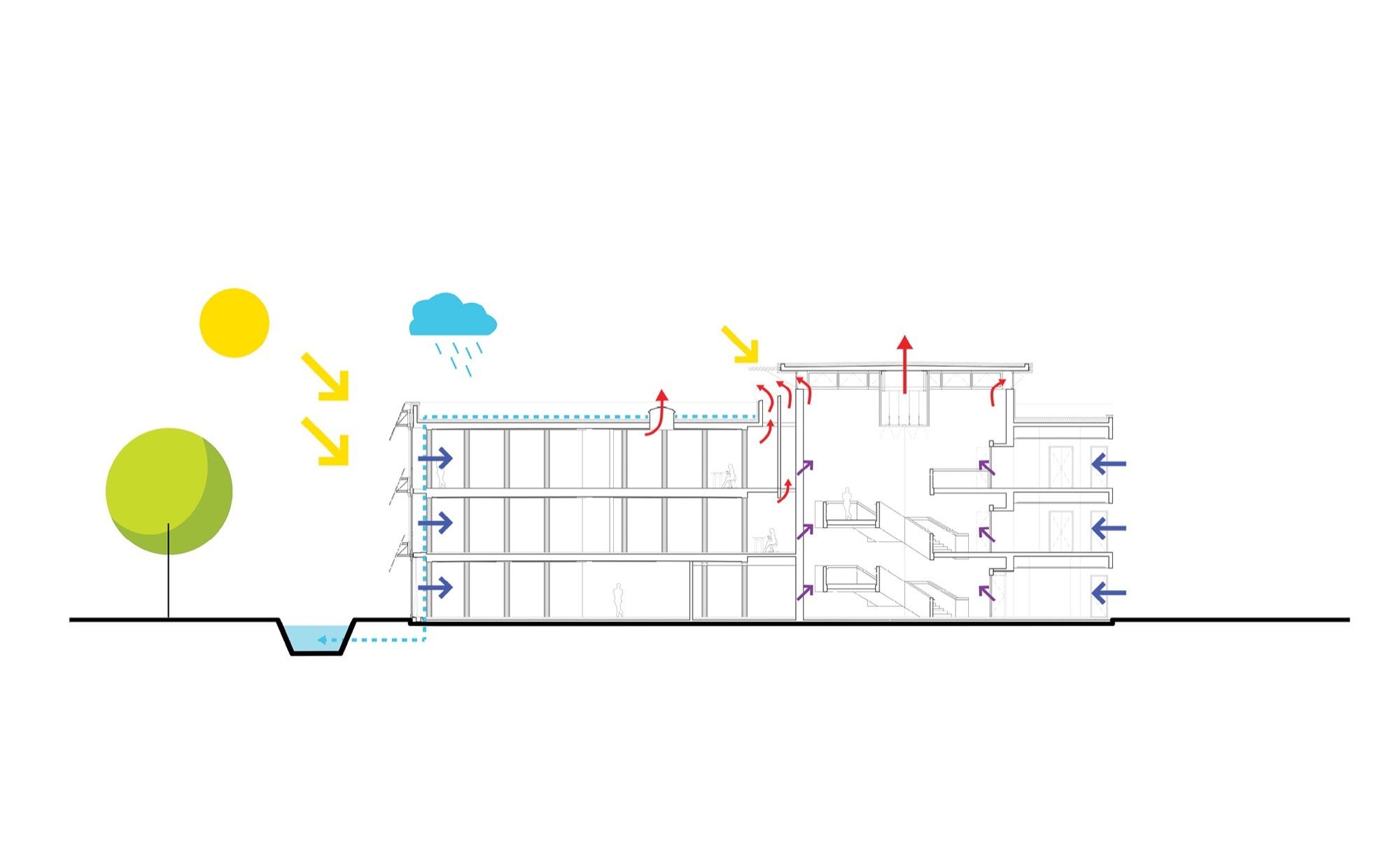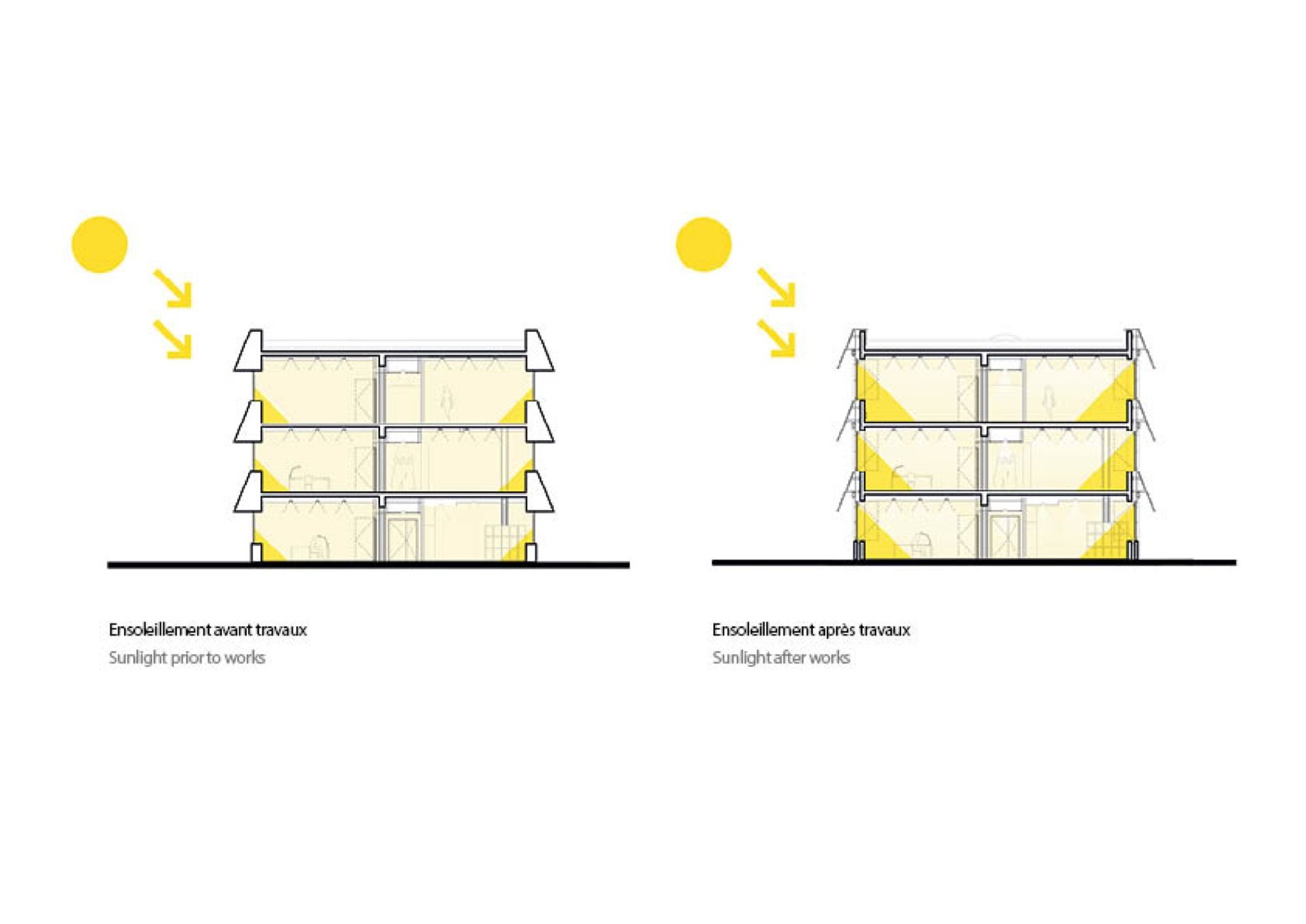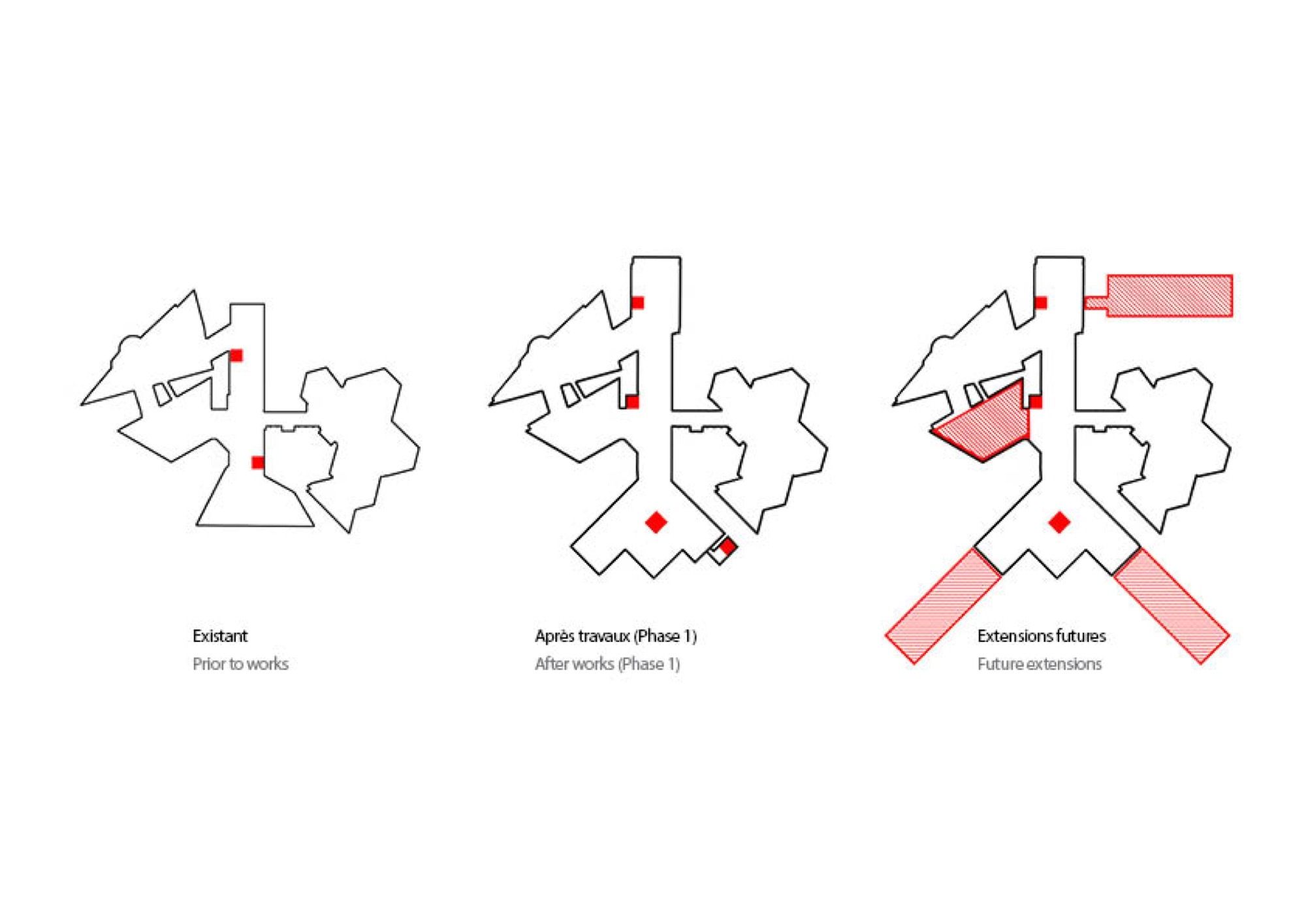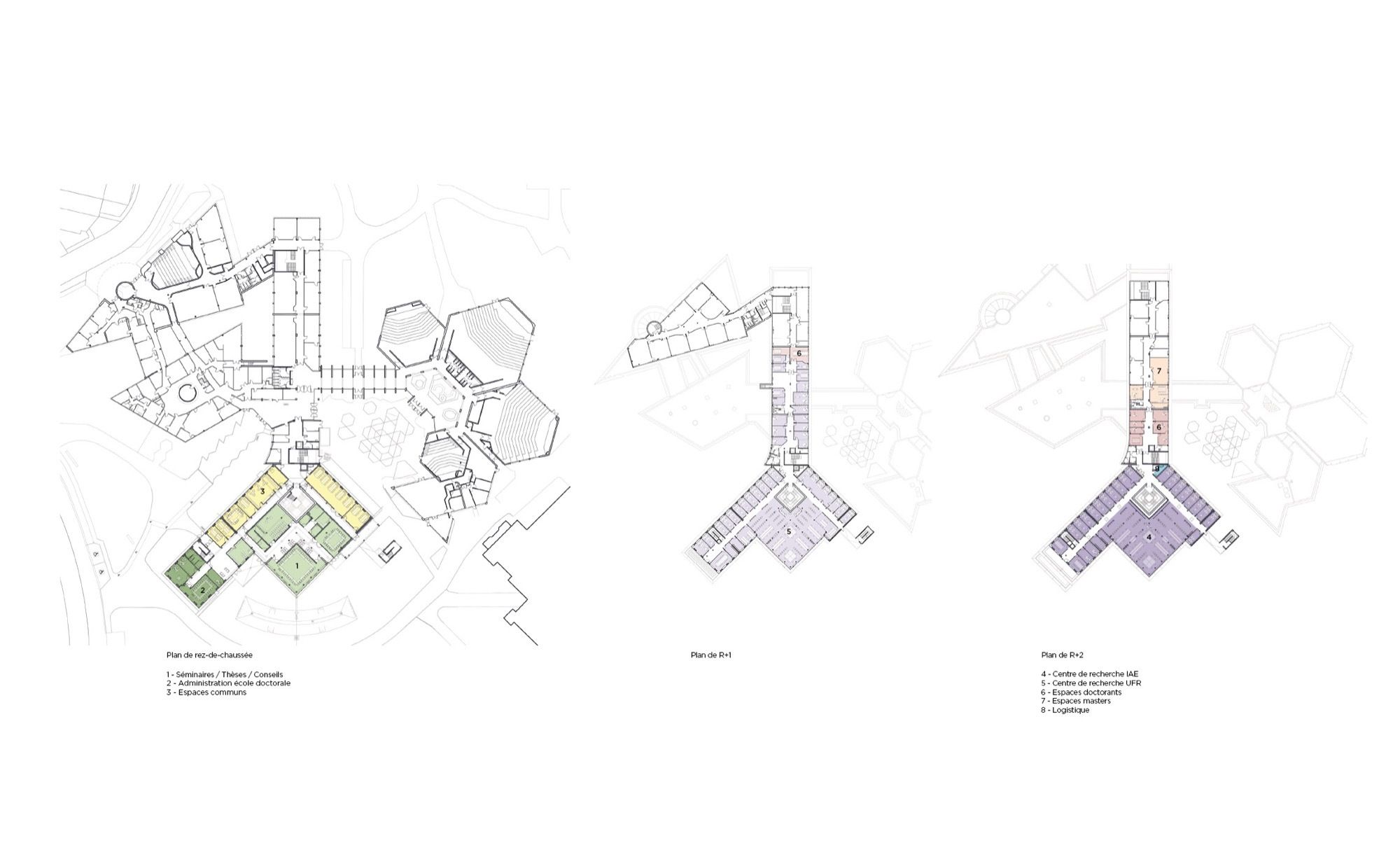Designed by Architecture Patrick Mauger, the campus of University of Pau et Pays de l’Adour (UPPA), bearing the hallmark of its architect André Grésy, is immersed in wooded grounds and has a strong relationship with its environment. In order to comply with the project developed by the university, to coordinate the different activities, and to upgrade – in terms of quantity and quality – the material means and real estate, the building of the Faculté de Droit, Economie et Gestion – Faculty of Law, Economics & Management – and of the Institut d’Administration des Entreprises – Institute of Business Administration – is reorganized, and an extension of the research centre is created.
The world of research is constantly changing. Therefore the project developed by Patrick Mauger is open-ended.
Inside, the entrance lobby is considerably enlarged. Orientation is facilitated. Circulation flows are separated. New vertical circulation routes allow better connections between floor levels, and it will be possible to create future extensions by adapting them. These strongly-marked architectural spaces make it easy for users to find their bearings and create favourable conditions for communication. On the south, an extension with full-height glazing is added onto the existing longitudinal building, extending the developed architecture into the grounds, to accommodate functions of the programme.
A wide central stairway winds around a void bathed in overhead lighting. The stairway is a real sculptural work in white concrete and is the spinal column of the scheme, set in a stairwell of red concrete, which gives it its force and allows all users to immediately find their bearings. It is accessible from communal areas for research teachers, seminars and thesis presentations, and from the administration offices of the doctoral school, and it leads to the upper floor levels, at the junction of the documentation areas and the research centres’ offices.
Outside, the façade of the University of Pau and Pays de l’Adour is revised and modernised. The horizontal bands of tiled canopies, which characterise the initial architecture, are adapted. A random mix of 5 colours of roof tiles, both enamelled and non-enamelled, livens up the façades of the new building, facilitating identification. These newly tiled canopies cover housings for retractable tilting sun-shade louvres, which allow personalised control of daylight admission and optimal thermal control of solar gain.
The use of bio-sourced ecologically responsible materials – external and internal wood joinery, including parquet wood strip flooring, wood wool external insulation, and terracotta tiles – helps to limit the new building’s carbon footprint. Other active devices and measures complement the work on the environmental approach: energy recovery from all air handling units, additional night-time ventilation, a BMS – building management system – and double flow ventilation to reduce energy consumption, and optimised natural daylighting.
University of Pau and Pays de l’Adour Product Description
Terracotta tile -A revised, modernised façade with terracotta roof tiles
The existing architecture is strongly marked by the horizontal bands of timber support frames covered with flammé red terracotta flat tiles. They provide protection from the sun and natural shade in the internal spaces which suffer from a lack of natural daylighting. To make up for this deficit and to improve the penetration of daylight, the extension’s new façades meet the aim of reinterpreting the existing architecture, while improving it and modernising its image.
Nearly 25,500 terracotta roof tiles, of the Aleonard Koramic type made by Wienerberger, were necessary for covering the new canopies:
- 17,500 non-enamelled roof tiles (i.e., 70%) of flammé red colour, extending the tiles of the existing building,
- 8,000 enamelled roof tiles (i.e., 30%) with 4 new colours: blue, red, yellow and yellow ochre.
A random mix of these 5 colours livens up the façades of the new building and allows their identification. Each of the 25,500 made-to-measure 10 cm x 20 cm terracotta flat tiles is clipped to the metal frames. All the frames, measuring 3 m x 2.15 m, are placed according to the façade grid of the timber window frames (1 m x 2 m) while maintaining the inclination and alignment on the existing canopies. According to the varying exposure, a play of solids and voids enlivens the façades of the new parts. The sun-shields are gradually perforated, depending on how close they are to the existing building: they are denser on the north-east and north-west to link to the existing building, and less dense on the south to highlight and enhance the new research centres.
With this perforation, daylight enters the reading rooms more abundantly in the spring, autumn and winter. On the west and east façades of offices located around the perimeter, retractable tilting sun-shade louvers are fastened to the structure of the canopies. They filter sunlight and allow personalised control of daylight admissions, according to the sun’s course.
All facings on the new façades are in a variety of colours:
- 5 colours of flat roof tiles,
- 3 colours of bakelized wood,
- 3 colours on retractable external blinds,
- 3 colours of lasure surface coating applied to the timber window frames.
These colour combinations of façade materials, which can be seen by everyone from the campus, create the new image of the University of Pau and Pays de l’Adour.
Project Info:
Architects: Architecture Patrick Mauger
Location: Avenue du Doyen Robert Poplawski, 64000 Pau, France
Project Year: 2015
Project Area: 3,600 m2
Manufacturers: Saint Gobain, Wienerberger
Photographs: Didier Boy de la Tour
Project Name: University of Pau and Pays de l’Adour
photography by Didier Boy de la Tour
photography by Didier Boy de la Tour
photography by Didier Boy de la Tour
photography by Didier Boy de la Tour
photography by Didier Boy de la Tour
photography by Didier Boy de la Tour
photography by Didier Boy de la Tour
photography by Didier Boy de la Tour
photography by Didier Boy de la Tour
photography by Didier Boy de la Tour
photography by Didier Boy de la Tour
photography by Didier Boy de la Tour
photography by Didier Boy de la Tour
photography by Didier Boy de la Tour
photography by Didier Boy de la Tour
photography by Didier Boy de la Tour
photography by Didier Boy de la Tour
Section
Diagram
Diagram
Plan


